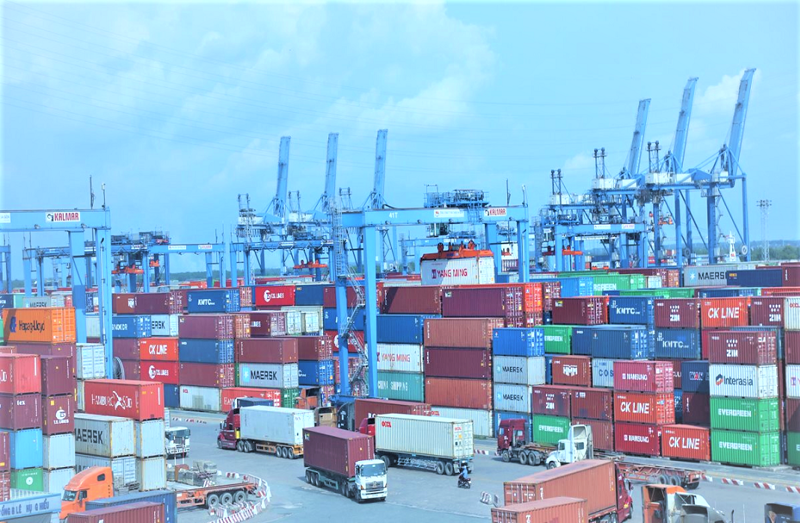Vietnam’s economic growth is expected to recover in the second half of 2023, reaching around 4.7 per cent for the year, supported by a rebound in exports and expansionary domestic policies, the International Monetary Fund (IMF) said in a press release issued on June 29 on its Vietnam 2023 Article IV Consultation.
“Inflation is expected to remain contained below the SBV [State Bank of Vietnam]’s 4.5 per cent ceiling,” the press release stated. “Over the medium term, Vietnam can return to high growth rates as structural reforms are implemented.”
“In the short term, downside risks to growth remain large. Growth could disappoint if weakness in external demand persists or investment remains subdued. A deepening of the ongoing real estate and corporate bond market problems, along with rising non-performing loans, could harm banks’ ability to support growth.”
“The measures taken by the SBV and the government have helped soften the impact of headwinds. Further efforts to safeguard macroeconomic and financial stability and accelerate reforms would ensure that the economy remains on a secure footing. The policy mix should be re-balanced with greater emphasis on fiscal support to the economy and the most vulnerable.”
“The SBV was able to both contain price and liquidity pressures in a very challenging environment. Greater exchange rate flexibility and continued efforts to modernize the monetary policy framework would provide significant dividends. Further monetary policy easing, and measures to boost credit growth, at this stage will likely be less effective and more risky, given global rates are likely to stay high for long, and banks in Vietnam are already facing rising non-performing loans and high loan-to-deposit ratios.”
“In this context, fiscal policy should take the lead in providing support to the economy and the poorest and most vulnerable groups, especially as the government has fiscal space. The planned increase in spending (wages and public investment) and cut in taxes will help boost domestic demand. However, some tax cuts are regressive and have negative effects on climate (for example, car registration fees). Instead, given taxes are relatively low in Vietnam, the authorities could instead consider boosting spending to address infrastructure, strengthen the social safety net, and address other social needs. Further fiscal support should be considered, especially if the recovery disappoints.”
“The current challenging economic environment and rising non-performing loans require the swift development of an action plan to protect financial stability and accelerating needed reforms. This would include strengthening the bank crisis management framework and improving bank regulation and supervision. The authorities should take advantage of the ongoing revision of the Law on Credit Institutions to develop more effective bank resolution and emergency liquidity frameworks.”
“Decisive actions to restructure the real estate sector and to promote a sound corporate bond market are warranted. The authorities have taken actions to reduce short-term risks, but more structural solutions should now be prioritized. In particular, the authorities should address legal bottlenecks that are impeding completions of real estate projects, strengthen the regulation and governance of the corporate bond market, and improve the debt enforcement and insolvency framework.”
“Achieving Vietnam’s ambitious development and climate objectives will require accelerating reforms to improve the business environment, critical infrastructure, and investing in education. Scaling-up social and infrastructure spending, including to meet Vietnam’s climate objectives, will require revenue mobilization efforts. The authorities’ new plans on energy and climate are an important step forward, and the priority should now be on implementing concrete actions. There has been a strong push in controlling corruption in recent years and continued efforts to improve governance and the business environment would be welcome. The Anti-Money Laundering / Countering the Financing of Terrorism framework also warrants strengthening. Efforts to reduce data gaps, including on the fiscal and external accounts, would help improve policy making and generate greater economic benefits.”
An IMF team led by Division Chief in the IMF’s Fiscal Affairs Department Paulo Medas conducted discussions for the 2023 Article IV Consultation with Vietnam from June 14-29.









 Google translate
Google translate